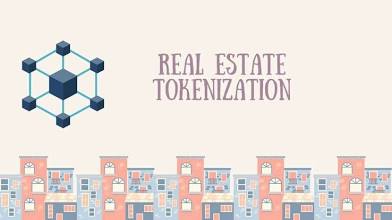IT IS YOUR MONEY
Tokenization Transforms Real Estate into Digital Assets
The real estate sector is undergoing a digital revolution through tokenization, enabling property ownership to be divided into secure, tradable digital tokens. This innovation increases liquidity, reduces entry barriers, and enhances transparency. By representing physical assets on blockchain networks, investors gain fractional access to high-value properties. Real-world pilots in Dubai and New York show promising results, signaling a shift in how we perceive and invest in real estate.

The Rise of Real Estate Tokenization
Tokenization involves converting ownership rights of real-world assets—like buildings, land, or commercial spaces—into digital tokens on a blockchain. Each token represents a share of the underlying asset, making it easier to buy, sell, or trade fractions of property. This process leverages smart contracts to automate compliance, dividend distribution, and ownership records, reducing administrative overhead.
Traditionally, real estate investment required substantial capital and was limited to accredited investors. Tokenization democratizes access, allowing retail investors to participate with smaller amounts. For example, a $10 million apartment building can be divided into 10,000 tokens priced at $1,000 each, enabling broader participation.
Global Examples and Market Adoption
Several real-world projects demonstrate the viability of real estate tokenization. In 2022, a luxury condominium in Manhattan was tokenized through a regulated platform, attracting over 300 global investors. Similarly, Dubai’s government-backed initiative, “Dubai Land Department,” has launched a blockchain-based property registry to support tokenized real estate transactions.
In Europe, platforms like RealT and Brickblock have enabled tokenized investments in residential and commercial properties across Germany and Spain. These platforms offer transparent pricing, real-time ownership tracking, and automated rental income distribution via stablecoins.
Regulatory and Technological Challenges
Despite its promise, tokenized real estate faces regulatory uncertainty. Jurisdictions vary in how they classify digital tokens—some treat them as securities, others as utility tokens. Compliance with KYC (Know Your Customer) and AML (Anti-Money Laundering) regulations is essential for legitimacy.
Technologically, interoperability between blockchains and legacy financial systems remains a hurdle. Ensuring data accuracy, cybersecurity, and long-term custody solutions for digital deeds are ongoing concerns. However, advancements in decentralized identity and oracle networks are addressing these gaps.
Future Outlook and Investment Potential
Analysts project the tokenized real-world asset market to exceed $16 trillion by 2030, with real estate leading the charge. Institutional investors, including BlackRock and JP Morgan, are exploring blockchain-based funds for real estate exposure. As regulatory clarity improves and infrastructure matures, tokenized property could become a standard asset class.
The fusion of blockchain and real estate not only enhances efficiency but also redefines ownership. Investors benefit from increased liquidity, transparency, and diversification, while developers gain faster access to capital.
By embracing digital innovation, the real estate industry is stepping into a more inclusive and efficient future. As global adoption grows, tokenized properties may soon become as common as stock market investments.
To learn more about how real estate tokenization can expand your investment portfolio, visit DigitalAssets.Foundation and speak with experts for a FREE consultation.

More News
© 2026
